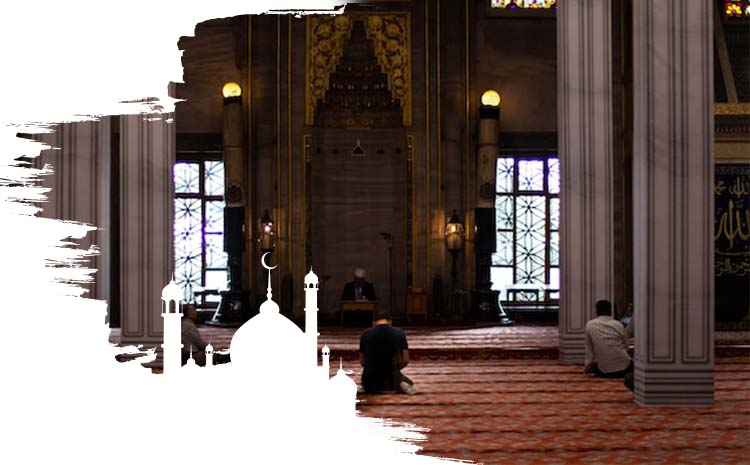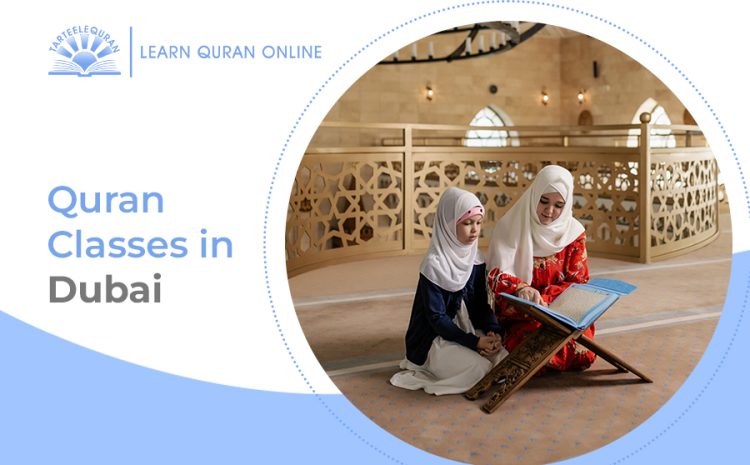How To Become A Muslim
- Islam – The Fastest Growing Religion. Islam is often referred to as the fastest-growing religion. Islam attracts new followers through conversion from various religions from all over the world. Various factors such as personal conviction, marriage, or exposure to Islamic teachings can lead to people adopting the religion.
- Who is a Muslim? Becoming a Muslim requires a very simple act, but the meaning behind it is very deep. You must believe that there is only one God, Allah, who created the entire universe, and that Muhammad (peace be upon him) is his final messenger on earth. Muslims think of themselves as members of one family called the Ummah. It’s a family of all Muslims, and not just of all Muslims around the world, but of all Muslims who ever existed.
- First Thing to Do. Declaring the Shahada(ٱلشَّهَادَةُ) is the first step towards how to become a Muslim. If you recite the following Arabic lines, with total sincerity, in front of two witnesses or an Imam (Islamic religious leader), you have become a Muslim. After saying the Shahada, you should take a bath, it is a symbolic act that signifies the washing away of the past. The Shahada is a simple statement that affirms the core belief of Islam. It is as follows:
” Ashadu Anlla Ilaaha IalaAllahu , Wa Ashadu Inna Muhammadan Rasulullah .”
In Arabic: أشهد أن لا إله إلا الله وأشهد أن محمدا رسول الله
This translates to:
“I bear witness that there is no god but Allah, and I also bear witness that Muhammad is the messenger of Allah.”
By sincerely reciting and believing in the Shahada, a person formally enters the fold of Islam and becomes a Muslim. The declaration acknowledges the belief in the oneness of Allah and the prophethood of Muhammad.
- Circumcision. Males are recommended to circumcise themselves. The local mosque should be able to direct you to a nearby clinic where this procedure can be performed in a sterile environment by qualified experts. To be clear, this is not a requirement, only a recommendation. Circumcision is a highly personal decision for a person to make.
- Perform Islamic obligations (Fard فرض).Islam requires Muslims to fulfill certain obligations. These obligations are called “Fard.” There are two kinds of Fard: Fard al-Ayn and Fard al-Kifaya. Fard al-Ayn are individual obligations—things every single Muslim must do if he or she is able, like praying daily and fasting during Ramadan. Fard al-Kifaya are community obligations—things that the community must do, even if every member doesn’t do them. For instance, if a Muslim dies, some of the Muslims in the community must get together to say funeral prayers. It’s not required for every individual Muslim to say the prayers. However, if no one says the funeral prayers, the whole community is at fault.
- Six Articles of Faith
- Allah (God). God is the creator of the universe and the only being worthy of worship.
- Angels. Angels are the unquestioning servants of God’s divine will.
- His Scripture. The Quran is the perfect will of God as revealed to Muhammad through the angel Gabriel (Christian and Jewish scripture is also considered holy, they were given from Allah but some or more of the content has already been changed).
- His Messengers. God sent Prophets (including Jesus, Abraham, and others) to preach His word on earth.
- The Day of Judgement. God will eventually raise all life for judgment at a time known only to Him.
- Fate. God has ordained all things—nothing occurs without His will or pre-knowledge.
- Core Principles of Islam
- Monotheism (Tawhid توحيد). A Muslim believes in the oneness of Allah (God) and that there is no god except Allah.
- Prophethood (Risalah رسالـة). A Muslim believes in the prophethood of Muhammad as the final messenger of Allah. They also believe in the earlier prophets, including Adam, Noah, Abraham, Moses, and Jesus, among others.
- Revelation (Quran اَلْقُرْآنُ). Allah revealed the Quran, the holy book of Islam, to Muhammad as guidance for humanity. Quran is the literal word of Allah and the ultimate source of authority in Islam.
- Five Pillars of Islam: A Muslim is expected to fulfill the five pillars of Islam, which are the fundamental acts of worship and religious obligations. After you have learnt how to become a Mulim, we will list the five pillars of Islam as well.
- Shahada (ٱلشَّهَادَةُ. As explained at the start.
- Salah صَلَاة. If it’s possible, a Muslim should pray five times a day, at set times, and face Mecca. You can pray almost anywhere. In mosques men and women pray separately; in some mosques, this is done with the men at the front and the women behind, in other mosques there are separate rooms for men and women. The method to perform the Salah:
- Purification (Wudu or Ghusl)
- Before prayer, ensure that you are in a state of ritual purity.
- Perform Wudu (ablution) by washing the following body parts: hands, mouth, nose, face, forearms, head (including ears), and feet.
- If you are in a state of major ritual impurity (such as after intimacy or menstruation), perform Ghusl (full ritual bath) before starting Salah.
- Find a clean and quiet place
- Choose a clean area where you can pray without distractions.
- It is preferable to pray in congregation at a mosque, but if that is not possible, find a suitable private space.
- Facing the Qibla
- Determine the direction of the Qibla (the Kaaba in Mecca, Saudi Arabia) using a compass or a Qibla-finding app.
- Stand facing the Qibla.
- Intention (Niyyah)
- Make the intention in your heart for the specific prayer you are about to perform. For example, “I intend to pray the Fajr (dawn) prayer, four units, for the sake of Allah.”
- Takbiratul Ihram (Opening Takbeer)
- Raise both hands to the level of the shoulders or ears, saying “Allahu Akbar” (Allah is the greatest).
- This marks the beginning of Salah.
- Recitation of Surah Al-Fatiha and Additional Verses
- Recite Surah Al-Fatiha (the first chapter of the Quran) silently.
- Recite additional verses or chapters from the Quran after Al-Fatiha.
- Ruk’ah (Bowing)
- While saying “Allahu Akbar,” bow down from the waist, placing hands on the knees.
- Stay in this position briefly, glorifying Allah.
- Standing Up from Ruk’ah
- Rise from the bowing position while saying, “Sami’Allahu liman hamidah, Rabbana wa local hamd” (Allah hears those who praise Him, our Lord, all praise is for You).
- Sujood (Prostration)
- Saying “Allahu Akbar,” go into prostration, placing the forehead, nose, hands, knees, and toes firmly on the ground.
- Repeat this position twice in each unit of the prayer.
- Tashahhud and Salaam
- Sit up from the second prostration and recite the Tashahhud, which is a specific supplication and acknowledgment of Allah’s presence.
- End the prayer by turning the head to the right and saying, “Assalamu alaikum wa rahmatullah” (Peace be upon you and the mercy of Allah).
- Then turn the head to the left and repeat the greeting.
- Prayer Units (Rakahs)
- The number of Farz (Mandatory) units in each prayer varies. The Fajr prayer consists of two units, Dhuhr and Asr consist of four units each, Maghrib consists of three units, and Isha consists of four units.
- Perform the actions mentioned in steps 6 to 10 for the appropriate number of units in each prayer.
- It is recommended to learn Salah from a knowledgeable Muslim, such as an imam or a mentor, who can guide you through the proper recitations, movements, and supplications. Additionally, there are resources available, such as books, and online tutorials.
- Purification (Wudu or Ghusl)
- Zakat زكاة: Muslims above the subsistence level must pay up to 2.5% of their annual savings to help people in need. Prayer and belief are not enough to make someone a good Muslim. Islam is very concerned about looking after the welfare of poor people, and the Qur’an specifies that all Muslims above the subsistence level must pay up to 2.5% of their annual savings to help people in need. Zakat is an obligatory act of worship and a form of charitable giving in Islam. It is an important pillar of the faith and is incumbent upon Muslims who meet specific criteria of wealth. It’s not a religious tax, as some people (not Muslims) say; it’s an act of worship, and it’s something that pleases God: in the Qur’an, you’ll find that prayer and zakat are frequently spoken of together. Paying Zakat also purifies the 97.5% of your wealth that remains, and you can use this as you wish with a clear heart. You can use some of it for gifts to charity, but such spontaneous charity is called sadaqah, not Zakat. Here is a general guide on how to give Zakat:
- Understand the eligibility: Zakat is obligatory for individuals who possess wealth above the Nisab threshold. The Nisab is the minimum amount of wealth one must possess to be liable for Zakat. It is determined based on the value of gold or silver or the equivalent in local currency. It is important to check the current Nisab value applicable in your region.
- Calculate your Zakat: Zakat is typically calculated as 2.5% of the eligible wealth. This includes cash, savings, gold, silver, business assets, and other forms of wealth held for one lunar year.
- Determine the Zakat recipients: Zakat must be given to specific categories of eligible recipients (as mentioned in the Quran, Surah At-Tawbah, verse 60):
- The poor and needy (Al-Fuqara’ wal-Masakin): Those who do not have enough to meet their basic needs.
- The destitute (Al-Gharimin): People burdened with debts that prevent them from fulfilling their basic needs.
- Zakat administrators (Al-`Amilin `Alayha): Individuals entrusted with the collection and distribution of Zakat.
- The newly converted to Islam (Al-Mu’allafatu Qulubuhum): Individuals whose hearts are inclined towards Islam or new Muslims in need of support.
- Freeing slaves (Fi Al-Riqab): The emancipation of slaves or captives.
- Those in debt (Al-Gharimun): Individuals burdened with debts but unable to repay them.
- In the cause of Allah (Fisabilillah): For various charitable projects, welfare, or supporting the spread of Islam.
- Pay Zakat: Distribute your Zakat directly to eligible recipients or through recognized charitable organizations. This can be done through cash, bank transfers, or other means accepted by the chosen institution.
- It is important to note that Zakat is distinct from voluntary acts of charity (Sadaqah), which are encouraged in Islam but not obligatory. Giving Sadaqah is a means of earning rewards and helping those in need beyond the obligation of Zakat.
- Consulting with knowledgeable scholars or individuals experienced in Islamic finance and Zakat matters can provide further guidance tailored to your specific circumstances and regional practices.
- Sawm صوم: If you’re a Muslim it’s not enough just to give money for the poor; you’re expected to understand what it feels like to be poor and hungry, and to go without food and drink. So once a year, for a month called Ramadan, all Muslims fast from first light until sunset; abstaining from food, drink, sex, and smoking. This fasting not only helps Muslims understand the needy, but it’s also a sort of ritual purification of themselves. It’s not just during Ramadan that Muslims abstain. When you become a Muslim, you must give up certain things like alcohol – khamr – and, of course, drugs forever.
- Hajj: The pilgrimage to the holy city of Mecca in Saudi Arabia, which is required once in a lifetime for those who are physically and financially capable.
-
Conclusion How to become a Muslim
As a new Muslim, there are Prophetic examples are a source of inspiration that can help you on your spiritual journey. You must believe that there is only one God, Allah, who created the entire universe, and that Muhammad (peace be upon him) is his final messenger on earth. Declaring the Shahada is the first step to becoming a Muslim. If you recite the following Arabic lines, with total sincerity, in front of two witnesses or an Imam (Islamic religious leader), you have become a Muslim. The core principles of Islam (Monotheism (Tawhid), Prophethood (Risalah), Revelation (Quran) are fundamental believes of a Muslim. A Muslim is expected to fulfill the five pillars of Islam, with proper knowledge and guidance they become very simple and easy to perform. Engage with fellow Muslims, Read, or listen to stories of other individuals who have embraced Islam. Their personal journeys, challenges, and transformations can be incredibly inspiring and relatable. These stories can reinforce your faith and provide you with a sense of community as you realize that you are not alone in your new path. This is a detail guide onw how to become a Muslim.






